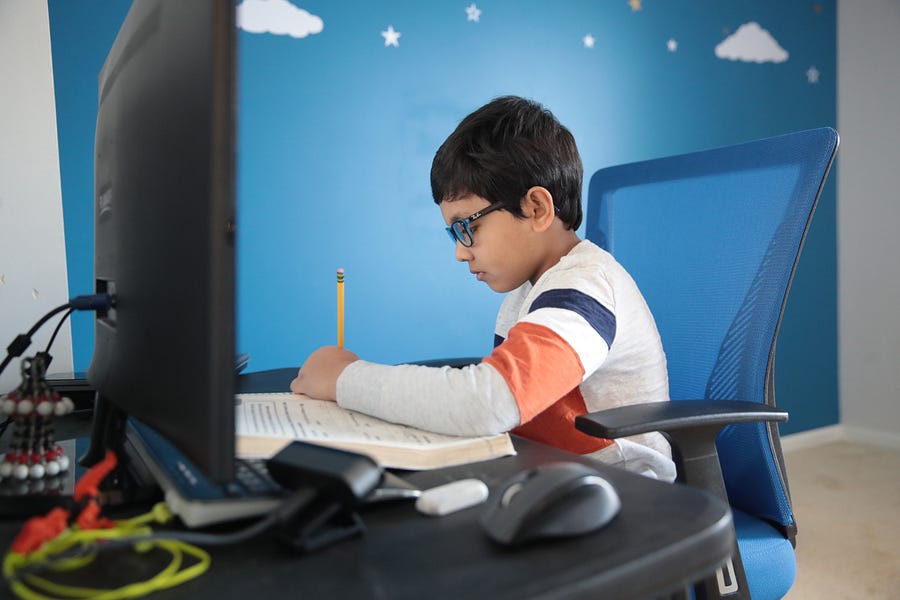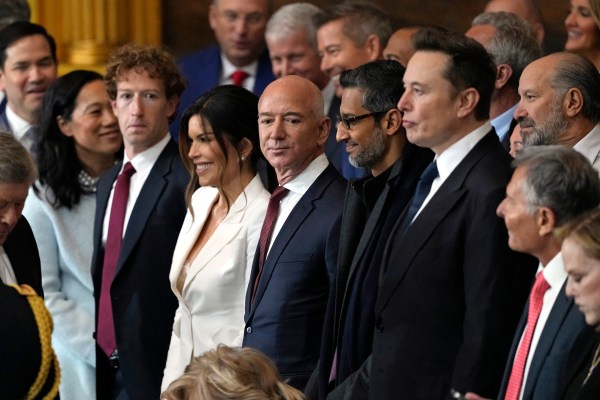Last week, the Los Angeles Times reported that kindergarten enrollment in Los Angeles Unified, the nation’s second largest school system, is down by 6,000 students—or 14 percent—since last fall. Between the attrition and spotty online attendance, some virtual kindergarten classrooms appear to be only half full.
There’s no evidence that the kindergarten declines are unique to L.A. Estimates from midsummer showed enrollment down by 5 percent to 40 percent across the land. Some of the drop is surely due to families bolting the city or opting for private school options. But in L.A. Unified, where nearly four in five students qualify for free or reduced-price lunch, it’s a safe bet that most of the missing kids haven’t fled to the suburbs or enrolled in private school. They’re just missing, not unlike this past spring.
L.A. superintendent Austin Beutner observed that the biggest drop in enrollment is in low-income neighborhoods, musing, in a bout of obviousness, “We suspect some of this is because families may lack the ability to provide full-time support at home for online learning, which is necessary for very young learners.”
Parents of young students can find online learning a brutal lift. No one who’s ever spent three minutes around a 5-year-old would expect them to partake in online classes for hours—or sit still through solitary “self-directed activities,” which means a parent or caregiver has to constantly monitor the student. Meanwhile, L.A. is requiring kindergarteners to do three hours of online instruction a day.
Then there are the demands of the technology. Even when devices aren’t at issue, parents have to struggle with bandwidth needs, required downloads, passcodes, access protocols, functions, multiple user accounts, and the potpourri of instructions. Parents with young children have made abundantly clear that the experience is exhausting, distracting, and dispiriting.
All these challenges apply in affluent, English-speaking, two-parent households. Things get tougher still for single parents, families in tight quarters, or parents trying to communicate about all this in a second tongue. And the demands of online learning can create an impossible dilemma for parents who work in jobs that don’t permit telecommuting.
As one anonymous L.A. principal told the Times, “It doesn’t surprise me that parents are … not comfortable with a 5-year-old sitting in front of a computer for a half or a full day. Honestly, I probably wouldn’t enroll my children in kindergarten right now.”
What to make of all this?
For starters, one can only wish that Beutner had been more focused on addressing this problem sometime during the past six months. He certainly found time to focus on policymakers in Sacramento and Washington. In April, just weeks into the shutdown, Beutner made a video pleading with state lawmakers to increase K-12 funding for “emergency coronavirus costs” for his shuttered schools. In May, Beutner joined a handful of California superintendents in issuing a letter threatening that any “cuts will mean” keeping schools closed even after “clearance from public health officials is given.”
Beutner went on to demand an additional $300 per student, more than $200 million overall, because he insisted that CDC protocols for schools, like distancing, masks, and handwashing “will not be enough” to reopen schools. He wrote that the $300 per pupil was just “a small fraction of the $17,000 Californians invest each year to educate a student,” which raises the question of why he didn’t just focus on temporarily reallocating a dollop of district spending in order to get kids back to campus. In any event, L.A. had six months to decide what to do with the $18,788 it currently spends per pupil, and none of that included tackling these wholly predictable enrollment shortfalls.
There were steps Beutner might have taken. He could have tasked staff with identifying every household with a kindergarten-age student and reaching out personally. He could have been sure to assign bilingual staff as needed. He could have offered a bonus to younger staffers willing to put on masks and go knock on doors for those families who lacked phones or electronic communication.
Instead, when schools shut down last spring, Beutner and the United Teachers Los Angeles negotiated a sweetheart deal stipulating that teachers would work no more than four hours a day, wouldn’t have to teach “live” online classes, and couldn’t even be required to work during the school day. The district agreed to pay 34,000 teachers and certificated staff 100 percent of their salaries for a 50 percent workday. Beutner extracted no evident quid pro quo, not even an expectation that staff would help reach out to incoming students this summer. In fact, the agreement did the opposite, specifying, “Any home visits made by unit members during the period of school closure shall be on a voluntary basis.”
Nationally, most teachers still haven’t gotten any specialized training. Kindergarteners don’t know their teachers or classmates, have trouble learning from watching a teacher talk on a screen, and are suffering from a lack of social connection. Few kindergarteners can read proficiently, so talk of independent learning is a pipe dream. And we won’t even wade into questions of vaccinations, abusive households, or the burdens on parents.
Back-to-school this year involves far too many 5-year-olds disappearing off the radar, other little kids squirming in front of screens, and parents at wit’s end. While I get lots of angry email from school leaders every time I write this sentence, I can’t help but wonder if things would be better if more leaders had approached the past six months with a more entrepreneurial mindset. Anyway, happy fall.
Frederick M. Hess is director of education policy studies at the American Enterprise Institute.
Photograph by Scott Olson/Getty Images.






Please note that we at The Dispatch hold ourselves, our work, and our commenters to a higher standard than other places on the internet. We welcome comments that foster genuine debate or discussion—including comments critical of us or our work—but responses that include ad hominem attacks on fellow Dispatch members or are intended to stoke fear and anger may be moderated.
With your membership, you only have the ability to comment on The Morning Dispatch articles. Consider upgrading to join the conversation everywhere.